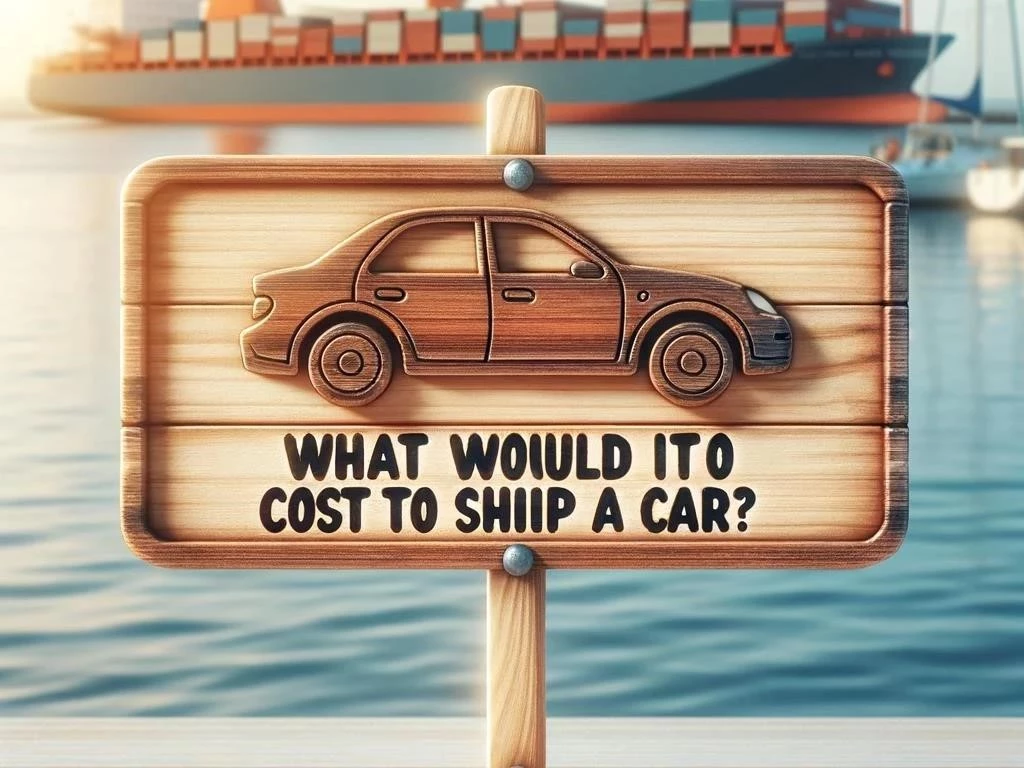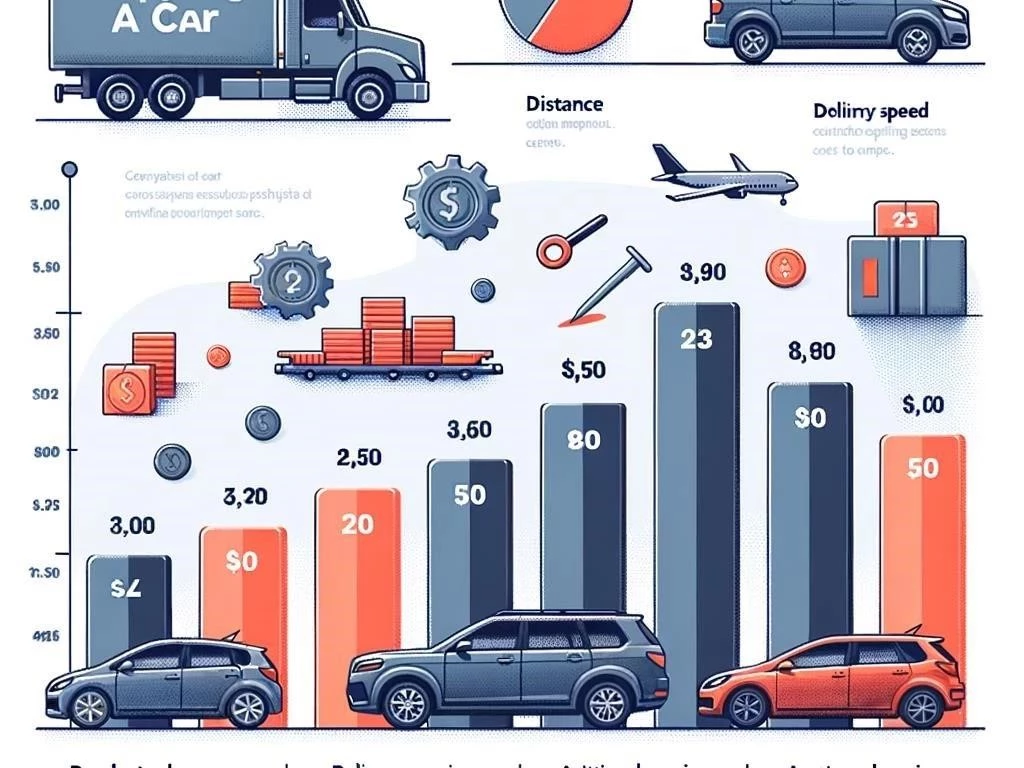What Would It Cost to Ship a Car?
Shipping a car involves various factors affecting costs, including transport method, distance, vehicle condition, and additional fees. Understanding these elements is essential.
Understanding Vehicle Transportation
Vehicle transportation encompasses the methods and processes involved in moving cars from one location to another. It is crucial to consider various factors that influence auto shipping, such as the distance traveled, the shipping method chosen, and the overall condition of the vehicle. Different car transport companies offer diverse services, including enclosed transport and open transport, each with unique advantages and costs. Familiarity with these aspects helps clients make informed decisions about their vehicle relocation needs.
Factors Influencing Auto Shipping Costs
Several cost factors determine auto shipping expenses, including the distance between pickup location and destination, the shipping method selected, and the vehicle’s condition. Additionally, shipping rates can be affected by seasonal demand fluctuations and fuel prices. Interstate car transport typically incurs different costs than local moves. Understanding these elements enables individuals to anticipate transport costs accurately. It’s essential to gather shipping quotes from various car transport companies to compare and evaluate their service options effectively.
Different Shipping Methods
When it comes to shipping a car, various methods are available, each affecting costs and delivery time. Open transport is a common option, allowing multiple vehicles to be shipped simultaneously, making it more cost-effective. In contrast, enclosed transport provides additional protection for luxury or classic cars, often resulting in higher shipping rates. Understanding these shipping methods helps customers choose the right solution based on their budget, vehicle condition, and specific transportation needs during the vehicle relocation process.
3.1 Enclosed Transport
Enclosed transport is a premium shipping method designed to provide maximum protection for your vehicle during transit. This option is ideal for high-value, classic, or exotic cars, as it shields them from weather elements, road debris, and potential damage. While shipping costs are typically higher than open transport, the added security and peace of mind make it a worthwhile investment for many owners. Understanding the benefits and expenses associated with enclosed transport is crucial for informed decision-making.
3.2 Open Transport
Open transport is a popular and economical method for shipping vehicles, allowing multiple cars to be loaded onto a single trailer. This method exposes vehicles to the elements but significantly lowers shipping costs compared to enclosed transport. It is well-suited for standard vehicles and those not requiring special protection. While open transport may result in increased vulnerability to weather and debris, many car owners find the cost savings appealing, making it a practical choice for vehicle relocation.
Shipping Quotes and Cost Estimates
Obtaining accurate shipping quotes is essential for understanding the costs associated with auto shipping. Many car transport companies provide online car shipping calculators to help potential clients estimate expenses based on factors like distance, vehicle type, and chosen shipping method. Comparing different shipping quotes allows customers to make informed decisions. Additionally, considering customer reviews can provide insight into the reliability of services offered, ensuring that individuals choose the best options for their vehicle delivery needs.
4.1 Using an Online Car Shipping Calculator
An online car shipping calculator is a valuable tool for estimating transport costs. By inputting details such as pickup location, destination, vehicle type, and shipping method, users can receive instant cost estimates. These calculators consider various cost factors, including mileage charges and additional fees, providing a comprehensive overview. Utilizing this tool helps individuals budget effectively, compare different car transport companies, and make informed decisions about their vehicle shipping needs, ensuring a smooth transportation experience.
4.2 Breakdown of Shipping Rates
Understanding the breakdown of shipping rates is crucial for evaluating transport costs. Typically, rates include base charges based on distance, vehicle type, and the chosen shipping method. Additional fees may apply, such as destination charges, mileage charges, and potential surcharges for expedited service. Shipping insurance is often recommended for added protection. By analyzing these components, customers can better comprehend total expenses, allowing for informed comparisons between different car transport companies and their respective service options.

Additional Fees and Charges
When calculating the total cost to ship a car, it is essential to consider additional fees and charges that may apply. These can include destination charges for delivery in remote areas, mileage charges based on distance traveled, and extra fees for specific vehicle conditions or modifications. Shipping insurance is another cost factor worth considering to protect your investment during transit. Being aware of these potential expenses helps ensure a comprehensive understanding of overall shipping costs.
5.1 Destination Charges
Destination charges are fees applied when delivering a vehicle to specific locations, particularly in remote or less accessible areas. These charges can vary significantly based on the distance from major transport routes and the overall difficulty of the delivery. Understanding these costs is essential for accurate budgeting during the vehicle relocation process. Customers should inquire about potential destination charges when obtaining shipping quotes to avoid unexpected expenses, ensuring a smoother and more transparent car shipping experience.
5.2 Mileage Charges
Mileage charges are fees based on the distance a vehicle must travel during transport, significantly impacting overall shipping costs. These charges are usually calculated per mile and can vary depending on the shipping method and route taken. Longer distances typically result in higher mileage charges, which should be factored into the total cost. Understanding how mileage charges work enables customers to make informed decisions when selecting car transport companies, ensuring a clear understanding of anticipated expenses.
5.3 Shipping Insurance
Shipping insurance is an important consideration when transporting a vehicle, offering protection against potential damage or loss during transit. The cost of shipping insurance varies based on the vehicle’s value, the chosen shipping method, and the coverage limits selected. Investing in insurance provides peace of mind, ensuring that financial losses are minimized in case of unforeseen incidents. Customers should carefully evaluate their insurance options and discuss coverage with their car transport companies to make informed decisions.
Vehicle Condition and Its Impact on Transport Costs
The condition of a vehicle significantly influences transport costs during shipping. Non-operational vehicles or those requiring special handling may incur higher fees due to the additional labor and equipment needed for safe transport. Moreover, vehicles in excellent condition often qualify for lower insurance premiums. When obtaining shipping quotes, customers should accurately describe their vehicle’s condition to ensure transparent pricing and avoid unexpected charges, ultimately leading to a smoother shipping experience and more accurate cost estimates.
Choosing the Right Car Transport Company
Choosing the right car transport company is crucial for a successful shipping experience. Factors to consider include the company’s reputation, service options, and overall customer satisfaction. Researching customer reviews can provide valuable insights into the reliability and quality of services offered. Additionally, comparing shipping quotes from multiple companies allows customers to evaluate pricing structures and available services. Ultimately, selecting a reputable car transport company ensures peace of mind and a smooth vehicle relocation process for all involved.
7.1 Customer Reviews and Service Options
Customer reviews play a vital role in evaluating car transport companies, as they provide firsthand accounts of service quality and reliability. Prospective clients should seek feedback regarding timeliness, professionalism, and overall satisfaction. Additionally, understanding the service options offered, such as open or enclosed transport, can help customers align their needs with the company’s capabilities. By considering both reviews and service options, individuals can make informed choices that best suit their vehicle shipping requirements and expectations.
7.2 Comparing Car Carrier Services
When evaluating car carrier services, it’s essential to compare multiple companies to find the best value for your shipping needs. Key factors to assess include shipping rates, available service options, and insurance coverage. Additionally, consider the company’s reputation, delivery timeframes, and customer support responsiveness. Gathering quotes and scrutinizing each service’s terms will help identify cost-effective solutions. By thoroughly comparing car carrier services, customers can ensure they select a reliable provider that meets their vehicle transport requirements.








